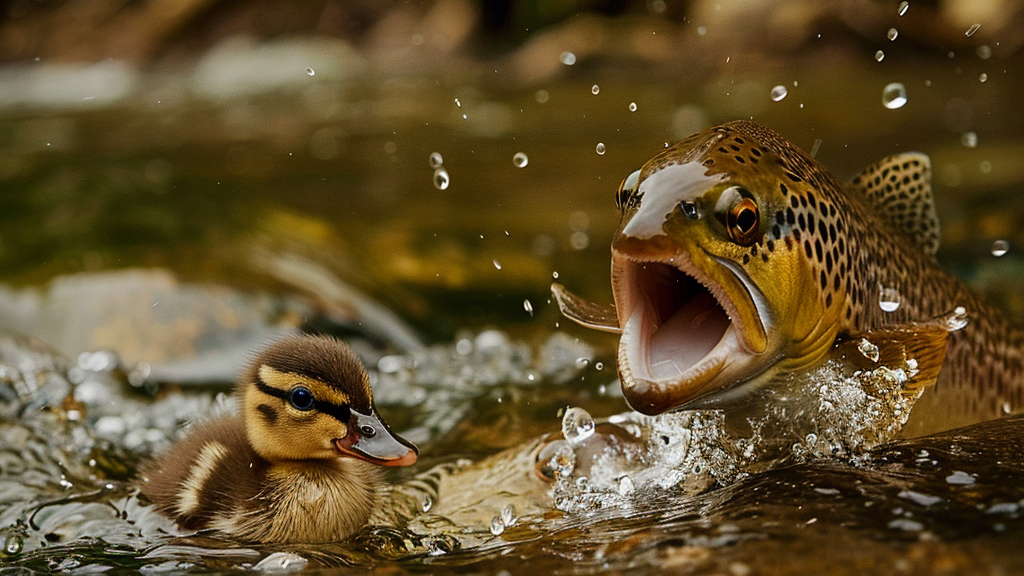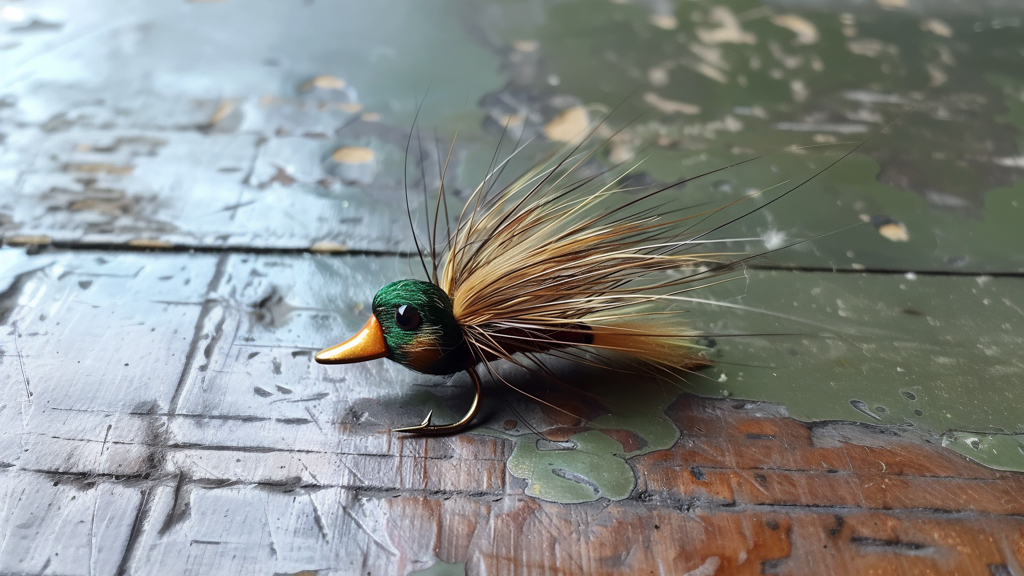MEMPHIS, TN — Ducks Unlimited, a nonprofit organization dedicated to conserving, restoring, and managing wetlands and associated habitats for North America’s waterfowl, has filed a class-action lawsuit on behalf of a dozen species of ducks native to the American Northwest. The legal action—believed to be the first of its kind—seeks damages in the form of financial compensation and the immediate eradication of a newly evolved strain of brown trout that ichthyologists call Edo Anatis. The case names Trout Unlimited as the defendant—an Arlington, VA, nonprofit organization dedicated to conserving freshwater streams, rivers, and associated habitats for trout, salmon, and other aquatic species.
“Trout Unlimited has invested millions of dollars supporting trout in general, but their recent work in habitat development has enabled the evolution of a strain of carnivorous trout with an insatiable hunger for baby and juvenile ducks,” said Kate Johnson, DSc, Duck Unlimited’s Chief Scientist for Emergent Threats. “The duckling survival rate for broods in the Beaverhead River watershed had been steady for decades,” Dr. Johnson noted in a recent NPR interview, “but a few years ago, hunters began reporting dramatic drops in their harvests, and after launching our investigation, we were shocked to see the survival rates plummet to low single digits due to this new strain of bird-eating trout.”

“Even a duck scientist should know that all trout species are opportunistic feeders, with large fish frequently feeding on frogs, mice, other fish, and small ducks,” said Bryn Anderson, Trout Unlimited’s Chief Aquatic Ecologist. “The natural environment is a cruel place where every animal is on another’s menu at some point, but it would be frivolous for Trout Unlimited to sue Ducks Unlimited over a sord of mallards eating trout fry, and this case is equally ridiculous.”
In a recent press conference, Albert Hartford, Jr., senior partner for Hartford, Hartford, and Keskimäki, explained the legal basis for Duck Unlimited’s case. “Our client contends this new strain of trout is an invasive predatory threat to ducks in their native environment and, as such, should be eradicated. Trout Unlimited counters that these wild trout have as much right to thrive in the rivers as the ducks. The crux of this case is whether these fish should be classified as invasive predators or wild fish.” Mr. Hartford, Jr., then went on to explain that the legal basis for his client’s case stems from the 1893 Nix v. Hedden decision, in which the Supreme Court of the United States unanimously held that for purposes of tariffs, imports, and customs, tomatoes should be classified as vegetables instead of fruits.
“By hitching their wagon to Nix v. Hedden, the plaintiff is grasping for straws,” said Anderson Hartford, lead counsel for Trout Unlimited, with no relation to the plaintiff’s team. “But I guess that depends on what the word ‘straw’ means,” Mr. Hartford said as he ended his brief statement in apparent disgust.
Many in the fly-fishing industry are watching this case while trying to anticipate its impact on their business. One of the more prominent players, Umpqua Feather Merchants—the Louisville, CO, supplier of fly fishing flies, materials, and equipment—has bet heavily on a favorable judgment for the trout by releasing a new line of realistic flies to imitate all species of North American ducks.



